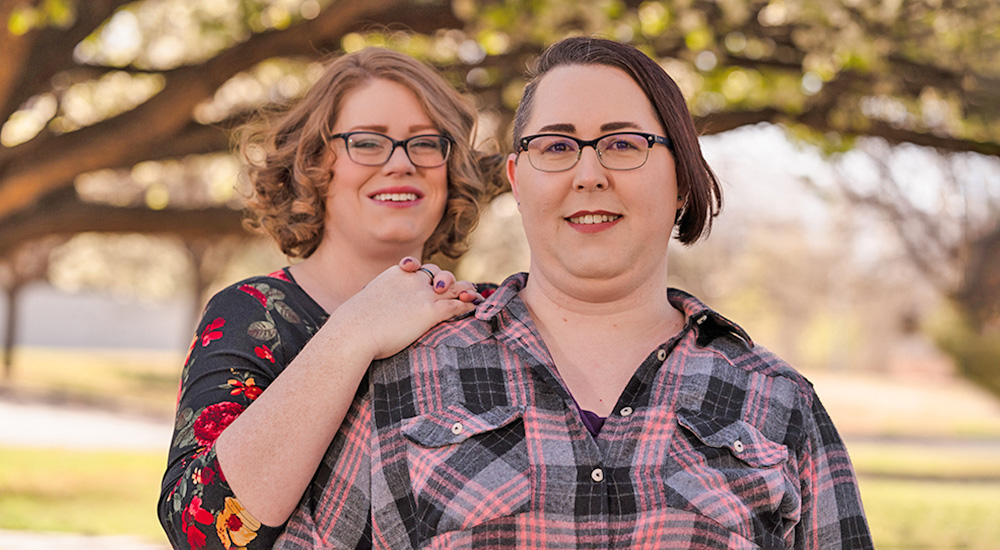
If you’re a Veteran who identifies as lesbian, gay, bisexual, transgender, queer or another orientation or identity (LGBTQ+) who is facing a physical or mental health challenge, you’re not alone.
VA welcomes all Veterans and their families and caregivers, including Veterans with diverse gender identities, sexual orientations and family structures.
As a Veteran who works for the nation’s largest health care system, I’m committed to making sure LGBTQ+ Veterans know they’re welcome at VA where they’ll receive affirming care and services to achieve optimal health and well-being. I’m dedicated to letting those who love and support LGBTQ+ Veterans know they have a role to play too, by learning how to talk to their loved ones and knowing what to do in a crisis situation.
A mission of care
LGBTQ+ people have a long history of honorable military service. However, open service for sexual minority people was only possible after 2011, when the Department of Defense’s Don’t Ask, Don’t Tell (DADT) policy was repealed. Open service for transgender and gender diverse people was possible briefly between 2016-2019, but then they were not able to serve openly again until 2021.
While VA has long served LGBTQ+ Veterans, the legacy of these policies continues to impact LGBTQ+ Veterans’ impression of inclusivity at VA.
Research shows LGBTQ+ Veterans expect to experience discrimination in VA facilities which may prevent them from seeking care. Research also shows that, due to stigma, stress, and discrimination, LGBTQ+ Veterans as a group experience higher rates of several health conditions compared to non-LGBTQ+ Veterans, including higher risk for suicide.
My colleagues and I work every day to provide high-quality health care for LGBTQ+ Veterans and help all Veterans manage health challenges in a sensitive, respectful environment. You can learn more about how issues associated with your identity can affect your health and how to talk about them with your doctor. This resource locator can help you find the care you need.
How to start a conversation
You don’t have to be a mental health expert to support a Veteran. You just have to show genuine care and concern. Here are some ways to approach a conversation with a Veteran who may be suicidal. It’s important to know various groups of Veterans have experienced discrimination that may contribute to their distress. But this information applies to all Veterans, no matter their branch, age, sex assigned at birth, gender, ethnicity or sexual orientation.
First, encourage the Veteran to speak freely and find out how you might be able to help. You can ask questions:
- “When did you first start feeling like killing yourself?”
- “Did something happen that made you feel like killing yourself?”
When responding to answers from a Veteran, remember simple, encouraging feedback goes a long way in showing support and encouraging help-seeking:
- “I’m here for you. How do you hurt and how can I help?”
- “Can we talk for a while and see if we can find a way to keep you safe right now?”
- “I might not be able to understand exactly what you’re going through or how you feel, but I care about you and want to help.”
Even for Veterans who don’t appear to be experiencing suicidal thoughts, it’s important to encourage them to find resources to help them face mental health challenges and more. For more information about VA’s mental health resources, including VA S.A.V.E. Training, visit mentalhealth.va.gov.
What to do in case of a crisis
If you believe a Veteran is at high risk or has already acted on a suicide plan, call 911.
Remember:
- Never negotiate with someone who has a gun. Get to safety and call 911, noting the Veteran is armed.
- If the Veteran has taken pills or acted on a suicide plan in some way, call 911.
- Veterans who are in emotional distress and showing warning signs for suicide can be connected to the Veterans Crisis Line: Dial 988 then Press 1, chat online, or text 838255. Caring, qualified responders are available to provide free, confidential support 24 hours a day, seven days a week, 365 days a year.
Responders are available to speak to Veterans and their caregivers, family members, or friends.
Though all Veterans are different, our goal remains constant: improving the health and well-being of Veterans to enhance their quality of life.








